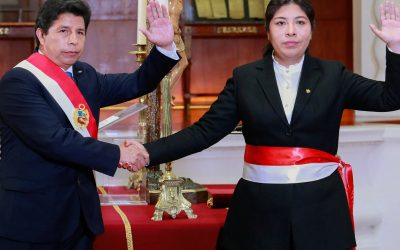The first step toward an Islamic Nato?

The strategic ambiguity of US foreign policy toward South Asia, particularly under the Trump administration, created a void that regional players are now exploiting to maximize gains and potentially redraw the Middle East’s security map. Last month’s defense pact between Pakistan and Saudi Arabia is far more than a symbolic gesture; it is a moment of global consequence.
The agreement signals growing skepticism toward traditional great power alliances, reinforcing a stark reminder: in a chaotic world, religion—specifically Islam—is emerging as the strongest guarantor of mutual loyalty. The deal’s timing, shortly after the Israeli strike in Doha, coupled with the increasing Islamization of the Pakistani military under General Asim Munir, must serve as a flashing red warning for Jewish, Christian, and Hindu communities worldwide.
A mutual defense clause, a nuclear question
During the September 17 state visit of Pakistani Prime Minister Muhammad Shehbaz Sharif to Saudi Arabia, the two nations unveiled the Pakistan-Saudi Strategic Mutual Defense Agreement (SMDA). This pact significantly upgrades their long-standing security relationship, explicitly stipulating that “any aggression against either country will be considered aggression against both.” While the agreement marks a logical continuation of close security ties dating back to the last century, it also strongly signals a grand project in the making among leaders in the Muslim world.
Even though the SMDA omits explicit mention of nuclear weapons, its deliberate ambiguity is telling. When journalists pressed officials on whether the deal effectively places Riyadh under Pakistan’s nuclear umbrella, Saudi representatives were evasive. Pakistani officials, however, were notably clearer: Pakistan’s Defense Minister stated that his country’s nuclear program would be “made available” to Saudi Arabia if required under the new defense pact.
Furthermore, the minister suggested a regional vision, stating that “the door is not closed to others,” indicating a potential open-door policy for the alliance. This is an unprecedented move: Pakistan is the first non-Nuclear Non-Proliferation Treaty (NPT) state to offer a mutual defense clause to a non-nuclear ally.
The historical development of Pakistan’s nuclear capability is deeply intertwined with Saudi financial support. When Pakistan elected to respond to India’s nuclear test in May 1998, the Saudis secured the move by promising 50,000 barrels of oil per day at no charge. This vital support significantly mitigated the impact of the American and European sanctions subsequently imposed on Pakistan.
It is no secret that Saudi Arabia has long desired its own nuclear weapons capability, consistently warning it would pursue one should Iran develop a bomb. Journalist Bob Woodward, in his book War, recounts a potent conversation illustrating this aspiration: Saudi Crown Prince Mohammed bin Salman allegedly told US Senator Lindsey Graham that he wouldn’t need uranium to build a device. His reported reply was simple: “I’ll just buy one from Pakistan.”
Riyadh’s hedge against the West
Saudi Arabia’s security demands from Washington—which include access to advanced weapon systems and a civilian nuclear project—have been subject to geopolitical friction. While the Biden administration made normalization with Israel a prerequisite, Donald Trump indicated a willingness to advance the deal without that condition.
However, Riyadh is now confronting a shifting geopolitical reality. Saudi leverage has failed to dictate regional policy against the perceived “American-Israeli wall,” particularly concerning the establishment of a Palestinian state. Amidst the ongoing Middle East conflict, which is reshaping the regional landscape, Riyadh has decided to accelerate contingency plans. The direction is unambiguous: a significant strengthening of an Islamic military alliance.
The strategic vision for a unified Islamic bloc has been percolating in Riyadh for nearly a decade. This goal gained tangible form in 2015 with the launch of the Islamic Military Counter-Terrorism Coalition (IMCTC). This initiative—the brainchild of Crown Prince Mohammed bin Salman—was an intergovernmental military alliance of 43 Muslim-majority nations dedicated to combating terrorism, yet it garnered little Western attention due to the focus on the Arab Spring fallout. The broader idea of an “Islamic NATO,” founded on the unity of the Islamic Ummah to secure the fate of the world’s Muslims rather than relying on the “hated infidel West,” was openly floated in Riyadh in early 2017.
The Coalition’s operational strength received a major boost despite earlier tensions. Following a period of strained ties—during which Islamabad declined to send troops to aid the Saudis in the Yemen conflict—Pakistan reversed course in 2017. It agreed to appoint its former Army Chief, General Raheel Sharif, to lead the Coalition. This decision was designed to bolster Riyadh’s regional power precisely as Iran ramped up support for regimes in Iraq and Syria and for the Houthis in Yemen. The Coalition’s recent five-day training exercise in Riyadh, reported on September 19, coming right after the mutual defense pact announcement, is clearly no coincidence. This signals a sophisticated, coordinated strategic pivot.
Fueling this strategic alignment is the rising Islamization of Pakistan’s military, the world’s sixth- largest, under the command of General Asim Munir, who frequently recites from the Quran in public, and has dragged the military’s ideological leanings back into the national conversation. He appears to be channeling the spirit of General Muhammad Zia-ul-Haq, who governed Pakistan from 1977-1988 and enforced a fundamentalist Sunni policy. Considering Munir’s image as a cold strategist with potential ambitions to extend his tenure, these ideological trends must be monitored carefully.
The new defense pact allows Pakistan to solidify its self-image as the “Protector of the Muslim World,” a role it has coveted since its 1998 nuclear tests. The Pakistani Army, widely known as the holder of the “Islamic Bomb,” views itself not merely as a standard national military but as the modern reincarnation of the medieval Arab and Turkish conquering armies that carried the banner of Islam across non-Muslim lands. These ideological tendencies are significantly amplified under General Munir’s leadership.
Disclaimer
Views expressed above are the author’s own.
END OF ARTICLE



